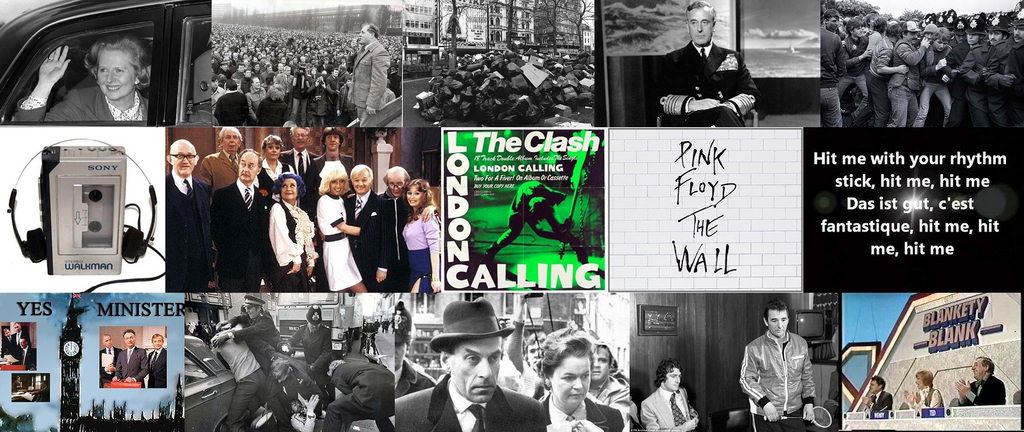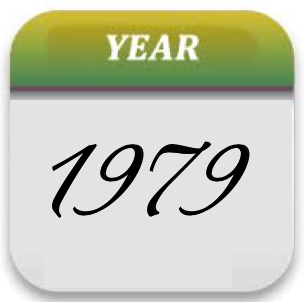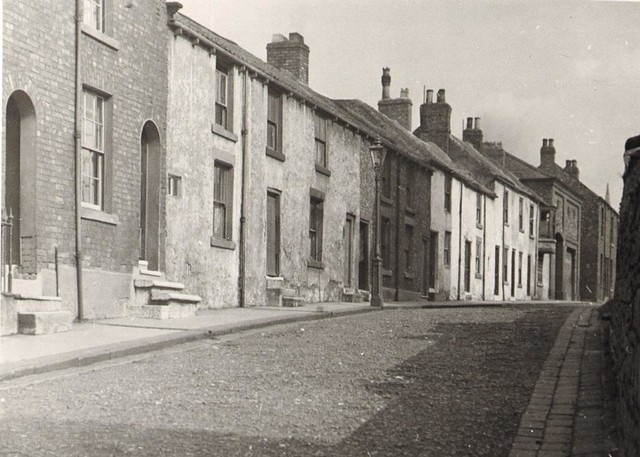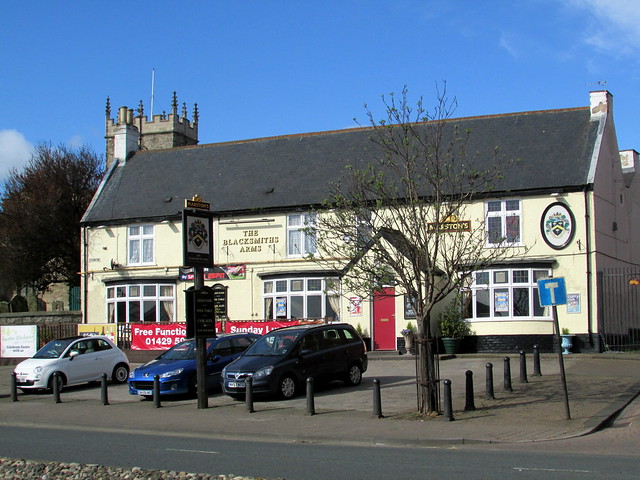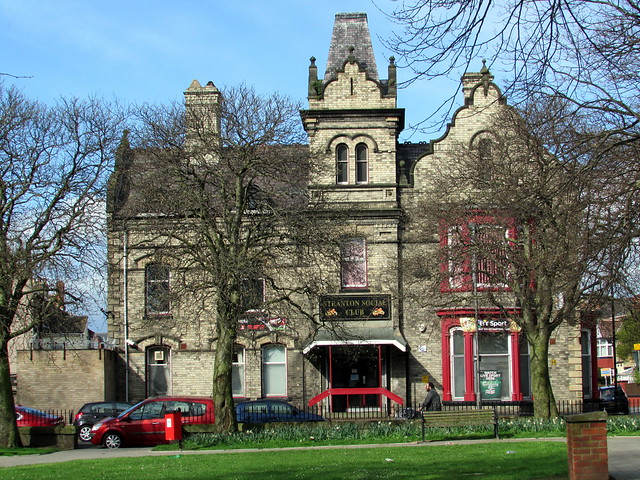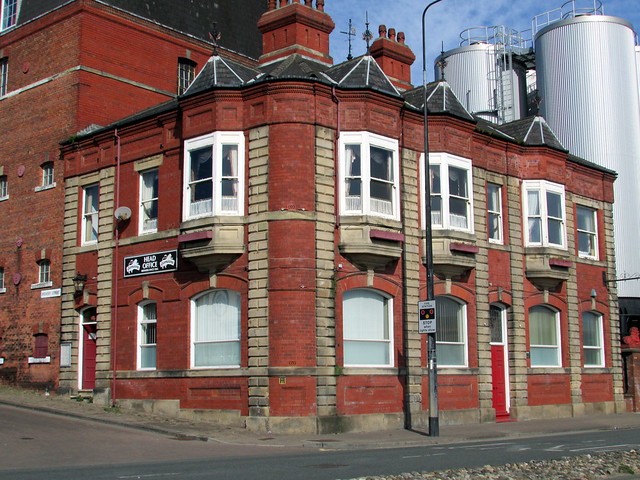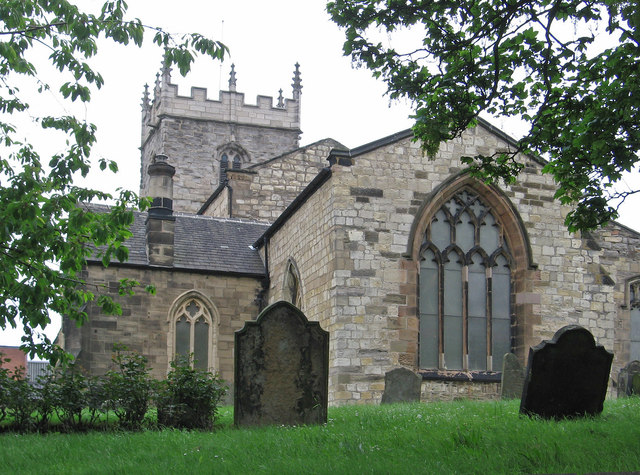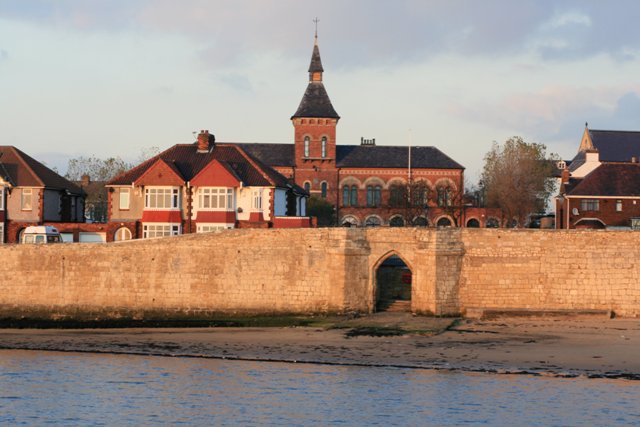That Was the Year That Was - 1979

-
Description
1979 For the first time in history in 1979 a woman Margaret Thatcher is elected Prime minister in the UK. As technology becomes smaller Sony released the Walkman a worldwide success costing $200 which at that time was a significant amount of money. Also the first Snowboard is invented in the USA. The bombing by the IRA in England continues with Lord Mountbatten and three others assassinated. Following the return of Ayatollah Ruhollah Khomeini Iran becomes an Islamic Republic and 63 Americans are taken hostage in the American Embassy in Tehran on 4th November. 1979 the Britain Thatcher Inherited The Conservative Party appointed her as their leader on 11 February 1975. She was the first woman to head a British political party, and went on to become the country's first female Prime Minister in 1979. Britain wasn’t a country gagging for modernization in 1979 so much as one in a state of nostalgia-tinged denial: a country still traumatized by the retreat from empire and the loss of its global economic clout, symbolized by its humiliation at the hands of the International Monetary Fund three years earlier. A generation on, and the political and economic debate is still tinged as much by the nostalgia as the modernization. In the “Winter of Discontent” in 1979, almost half of the hospitals in the U.K. were accepting only emergency patients. Household rubbish collection stopped. Petrol shortages loomed as flying pickets of transport workers blocked refineries. And it was the coldest winter in 20 years to boot. One of Margaret Thatcher's first political battles after becoming Prime Minister in 1979 was with the unions and Red Robbo in Birmingham. The British Leyland era at Longbridge became a byword for wildcat walkouts, union militancy and industrial chaos – and helped clear the path to political power for Margaret Thatcher. Just two years after the arrival of hardliner Michael Edwardes, the diminutive South African car chief who took on Red Robbo and the unions at Longbridge, she was voted in as Britain’s first woman Prime Minister. The former Communist works convenor was drummed out of Longbridge after 38 years in November 1979 – within six months of Thatcher’s ascent to power. The mood of the country had changed dramatically. Robinson was sacked by BL for putting his name to a pamphlet that had criticised the BL management. A strike ballot opposing the dismissal was held but was thrown out by an overwhelming 14,000 against to just 600 in favour. It was the end of the road for Red Robbo at Longbridge and a watershed in industrial relations in the West Midlands car industry. Significantly, in her memoirs, Thatcher later described Robinson as a ‘notorious agitator’. The BBC had once claimed that between 1978 and 1979 Robinson was credited with causing 523 walkouts at British Leyland, costing an estimated £200 million in lost production. The BL-style disruption had spread across the nation, and the so-called Winter of Discontent in 1978-79 saw 29.2 million working days lost, with bodies left unburied following a gravediggers’ strike and uncollected rubbish piled high in the frozen streets, when dustbin workers walked out. It was in that climate of lingering industrial chaos that Margaret Thatcher came to power the following spring. In his last newspaper interview at the time of the closure of MG Rover in April 2005, Robinson, who is now in his 80s, told the Mail: “Edwardes wanted to reduce it to a small motor company and closed 13 factories, but he never made a profit. “I grew up with the company, joining as a toolmaker at 14 in 1941 and loved my time, both as an ordinary worker and then convenor. “But when Edwardes took over the writing was on the wall. Shutting plants down was not the way to go.” He described his Red Robbo tag as a badge of honour. The backdrop to the industrial climate which saw Sir Michael Edwardes – and his spiritual political leader at Number 10, Mrs T – defeat Red Robbo is described in Gillian Bardsley and Colin Corke’s history of the famous Birmingham car factory, Making Cars at Longbridge. The authors wrote: “The formation of British Leyland in 1968 created the fourth biggest motor manufacturer in the world, a formidable player in terms of jobs, finance and exports, something no Government could afford to ignore. “BL dominance of the home market evaporated as Ford strengthened and imports grew in volume, including the rapidly improving products of Japan. “The company changed its name to Rover Group in 1986, officially banishing the last vestiges of British Leyland, though it would prove more difficult than this to wipe these words from the British consciousness. “Margaret Thatcher, the Conservative Prime Minister elected in 1979, would certainly not be fooled by a change of name. Nevertheless in 1988 she sold the Government’s unwanted shareholding in Rover Group to British Aerospace.” Lord Kumar Bhattacharyya, head of the WMG manufacturing arm of Warwick University, who was an industrial adviser to Mrs Thatcher for much of her period in office, said: “She came to the fore at a time when the perception of Britain as an economic entity was very low. “I can’t think of anyone else in recent history who was so single-minded in her determination to turn Britain round. Today we are enjoying the fruits of what she put in place. “She gave power to young people and the working class. She ensured that Britain escaped the image of being strike ridden and suffering a lack of competitiveness.” All had disappeared forever by the time Mrs. Thatcher left the stage in 1990, many of them succeeded by privatized versions of the same companies that have come to be every bit as bitterly resented, for various reasons. 1979 Population: 56.27 million Gross domestic product: £199.22bn Average household income per week: £248.96 Average house price: £83,169 Life expectancy: men, 70.33 years; women, 76.41 years Britain in 1979 The average house cost £13,650, and inflation was 17%. Sony launched a portable cassette player called a Walkman, marketed in the US at $200, and McDonalds introduced Happy Meals. Mother Theresa won the Nobel peace prize, China ordered its citizens to have no more than one child, and smallpox was eliminated. Britain's trade unions entered 1979 in a state of deep discontent at Jim Callaghan's attempt to control soaring inflation by limiting pay. But while graveyards were locked and civic squares piled high with uncollected rubbish, popular culture offered merciful release. Britons watched home-grown favourites Are You Being Served and Last of the Summer Wine, and indulged in the comparative glamour of American imports Dallas and Charlie's Angels . For most of 1979 they were unable to read the Times, which did not appear for almost a year owing to an industrial dispute. The Clash released London Calling and Pink Floyd released The Wall, while Off the Wall became Michael Jackson's breakthrough solo album. 1979 was also the year the performer had what is thought to be his first cosmetic surgery, after breaking his nose while dancing. The release of the Sugarhill Gang's Rapper's Delight in October 1979 was credited with heralding the birth of hip-hop. Sid Vicious died of a heroin overdose while on bail for the murder of his girlfriend Nancy Spungen. Kramer vs Kramer was the year's top-grossing movie in the US, and Alien and Apocalypse Now were also in the top 10, with The Muppet Movie. Punk and new wave dominated the music scene, with Ian Dury & The Blockheads' 'Hit Me With Your Rhythm Stick' and Blondie's 'Heart Of Glass' two of the year's first number one singles. Joy Division's debut album Unknown Pleasures – an aptly dark, brooding picture of despair – was released in June. Amid the gloom, the television schedules were packed with what would become Britain's most affectionately remembered comedy series. New episodes of Fawlty Towers, Yes, Minister, Terry and June, Minder, and To The Manor Born were all screened throughout the year. The two Hollywood blockbusters Alien and Mad Max proved hits in cinemas, propelling their stars Sigourney Weaver and Mel Gibson into the 1980s A-list. 1979 was a unique year for Top of the Pops, which saw the show record its highest audience of 19 million viewers and in which physical format singles sales hit an all-time high of 79 million. 1979 is maybe the most diverse year ever for acts on Top of the Pops with disco at its peak, new wave, 2 Tone, reggae, rock, folk and electro records all making the top five. Original interviews with Gary Numan, Nile Rodgers, Woody from Madness, Jah Wobble, Chas and Dave, Janet Kay, Linda Nolan, Jim Dooley, Secret Affair, the Ruts, Legs and Co and many others tell the story of an exceptional year. In the year that the 'winter of discontent' saw continuing strikes black out ITV and TOTP reduced during a technicians strike to a narrator introducing videos, the show also found itself the site of conflict backstage. TOTP's old guard of 70s MOR acts had their feathers continually ruffled by new wave bands, as the Skids spat at the Nolan Sisters backstage and Generation X urinated off the roof onto the Dooleys. Elsewhere in the corridors of TV Centre, in preparation for playing their single Death Disco, Public Image Ltd demanded their teeth were blacked out in make-up to appear ugly while Gary Numan remembers the overbearing union presence which prevented TOTP artists moving their own microphones without a union technician and the Musicians Union trying to ban him from the show for his use of synthesizers. The most popular musical styles of 1979 were 2 Tone, reggae and disco. The latter saw Nile Rodgers, the man of the year, score four hits with Chic as well as writing and producing a further four hits with Sister Sledge, Sheila B Devotion and Sugarhill Gang, who appeared with what would prove to be the first ever rap hit. Jamaican and UK reggae artists scored continual hits through the year and then watched as the Police notched up three hits with white reggae and the label 2 Tone revived the 60s reggae style known as ska. In November, in what is remembered as the 2 Tone edition, all three of the label's new acts - Madness, Specials and Selecter - appeared on one historic night and took the show by storm, with Madness capping off their performance of One Step Beyond by leading a 'nutty train' conga through the studio. The Murder of Earl Mountbatten 2015 - The Irish police have been accused of failing to fully investigate IRA terror suspects responsible for the Mountbatten killings in 1979, along with other terror attacks. A Westminster source has made clear his suspicion that the Irish authorities were fully aware of who caused the death of Earl Mountbatten of Burma, the Queen's cousin. But the source continued that the motivation to investigate past terrorist attacks had dissipated following the signing of the Good Friday Agreement in 1998. The agreement gave those suspected of attacks an amnesty, the source told the Sunday Telegraph, in a secret deal for peace. The source added that 'of course' the Irish knew who had committed the murders, as they were 'very good at gathering intelligence' but were not successful when it came to taking the cases to court. The revelations have emerged in the lead up to the ground-breaking first official visit by the Prince of Wales - the murdered Earl's great-nephew - to the site of the attack, to be made this week. Prince Charles will visit the scene of the murder in the fishing village Mullaghmore, Co Sligo, as part of a four-day tour of the Republic of Ireland and Northern Ireland. Only one man has ever been convicted over the Mountbatten killings, the now 67-year-old bomb-maker Thomas McMahon. But as he was 70 miles away in police custody - and therefore unable to detonate the bomb - when the boat was blown up it is clear that at least one accomplice managed to escape justice. A bomb packed with 50lb of explosives was stashed aboard the Earl's boat, Shadow V, in August 1979. The bomb was detonated when the boat was about 200 yards from Mullaghmore harbour, as it was being taken out to sea. It is certain that the bomb was detonated by an accomplice keeping watch, and not by an automatic timer, because it was not certain when the group of passengers would board the boat. Two teenage boys were also killed in the explosion, the Earl's 14-year-old grandson Nicholas Knatchbull and 15-year-old Paul Maxwell, a local boat hand. The 83-year-old Dowager Lady Brabourne - who was also aboard the boat - died from shock and internal injuries the day after the attack. Mountbatten’s daughter Lady Brabourne and her husband Lord Brabourne were both injured but survived the blast, as did their son Timothy, Nicholas’ twin brother. McMahon served 18 years before being released in 1998 under the Good Friday peace agreement. But a spokesman for the Irish police - known as the Garda - has insisted that the case remains open while urging any members of the public who may have information about the killings to come forward. Onlookers have insisted that the Westminster sources claims, along with the upcoming visit of Prince Charles, should inspire a renewed urgency within the investigation. The source insisted that the Garda was in fact aware of names of those suspected of carrying out the Mountbatten bombing, as well as other terror attacks. But he continued that they failed to act on that knowledge as a result of an 'amnesty' struck up as a result of the Good Friday Agreement, signed by the British and Irish governments. IRA suspects received what have become known as 'comfort' letters from the British government, it has previously been revealed. The letters reassured suspects who had not yet been prosecuted and were 'on-the-run', that they were not being pursued for any specific offence. The 'comfort' letter controversy emerged after the trial of John Downey collapsed last year. Downey had been charged with the murder of four soldiers in the Hyde Park bombing in 1982, but had received a 'comfort' letter while he was on the run. The source insisted that as a result of this covert amnesty, the authorities did not pursue those suspected of carrying out these notorious attacks. Although Charles' visit comes 36 years after the bombing, it is believed that he has wanted to visit the village for some time. The Prince of Wales - accompanied by the Duchess of Cornwall - will arrive on Tuesday, when they fly to Galway for a reception at the city's university to celebrate the area's links with Britain. They will later attend a private dinner hosted by the Irish president, Michael D. Higgins, in Lough Cutra Castle in South Galway. On Wednesday they will attend a service of peace and reconciliation at Drumcliffe church in Sligo. Car bomb kills Airey Neave Shadow Northern Ireland Secretary Airey Neave killed by a car bomb as he left the House of Commons car park. The bomb, said to be highly sophisticated, exploded as Mr Neave began driving up the exit ramp shortly before 1500GMT. Emergency services were on the scene in minutes. The 63-year-old Conservative MP, known for his tough line on anti-IRA security, was taken to Westminster Hospital where he died from his injuries. So far two groups, the Provisional IRA and the Irish Natonal Liberation Army, have claimed they carried out the killing. It is not yet known when the bomb was attached to his car but investigators believe a timing device and trembler - which detonates the bomb through movement - were used to ensure the bomb went off as Mr Neave was leaving the Commons. The area around Parliament Square was immediately closed as police began a full-scale search of the premises. Despite increased threats to the safety of MPs not all cars are checked fully as they enter the car park. Gilbert Kellard, assistant commissioner of the Metropolitan Police said Mr Neave was aware of the dangers and was "happy and content" with his security. Conservative leader Margaret Thatcher led tributes to Mr Neave saying: "He was one of freedom's warriors. Courageous, staunch, true. He lived for his beliefs and now he has died for them." Prime Minister James Callaghan said: "No effort will be spared to bring the murderers to justice and to rid the United Kingdom of the scourge of terrorism." The killing is thought to have been timed to coincide with the start of the election campaign which was announced yesterday. Mr Neave was a close adviser to Mrs Thatcher, he led her campaign to become the Conservative Party leader and headed her private office. Teacher dies in Southall race riots A 33-year-old man has died from head injuries after a bloody battle broke out between police and demonstrators in Southall. The fighting began when thousands of protesters gathered to demonstrate against a National Front campaign meeting. The extreme right-wing organisation had chosen Southall Town Hall to hold its St George's Day election meeting. The area has one of the country's biggest Asian communities. Police had sealed off the area, and anti-racism demonstrators trying to make their way to the town hall were blocked. In the confrontation that followed, more than 40 people, including 21 police, were injured, and 300 were arrested. Bricks and bottles were hurled at police, who described the rioting as the most violent they have handled in London. Among the demonstrators was Blair Peach, a New Zealand-born member of the Anti-Nazi League. A teacher for special needs children in east London, he was a committed anti-racism activist. During an incident in a side street 100 yards from the town hall, he was seriously injured and collapsed, blood running down his face from serious head injuries. He died later in hospital. Witnesses said his injuries were caused by police baton blows. Martin Gerrald, one of the protestors, was nearby Mr Peach at the time. "Mr Peach was hit twice in the head with police truncheons and left unconscious," he said. "The police were wielding truncheons and riot shields. It was a case of the boot just going in - there was no attempt to arrest anybody." Another witness, 24-year-old Parminder Atwal, took the injured teacher into his house and called an ambulance. He said, "I saw a policeman hit a man on the head as he sat on the pavement. The man tried to get up, fell back and then reeled across the road to my house." The Anti-Nazi League claim Mr Peach bore the brunt of a "brutal" and "excessively violent" police baton charge. A spokesman for Scotland Yard said it was impossible to comment on the death until a full-scale inquiry had been completed. Thorpe cleared of murder charges Former Liberal Party leader Jeremy Thorpe has walked out of the Old Bailey a free man, after a jury cleared him of the attempted murder of Norman Scott. Mr Thorpe, who resigned as leader in 1976 amid allegations that he had had a homosexual affair with Mr Scott, hailed his acquittal as "a complete vindication". Mr Thorpe and three other men were charged with conspiracy to murder, after the bungled assassination attempt of Mr Scott on a deserted moor in Southern England. All were found not guilty. It took the jury 15 hours of deliberation spread over three days to reach its verdict. Mr Thorpe was also acquitted on a charge of inciting one of his co-defendants, David Holmes, to murder Mr Scott. The trial lasted 31 days but Mr Thorpe's ordeal began when he was charged last August. Although he was found not guilty, the case has probably ruined Mr Thorpe's political career. As the verdict was read out he sat motionless. Afterwards he leant over to give his wife a long kiss. Speaking later he said: "I have always maintained that I was innocent of the charges brought against me and the verdict of the jury, after a prolonged and careful investigation by them, I regard as totally fair and a complete vindication." He added that he would be taking "a short period of rest" away from the glare of publicity. Jeremy Thorpe's political career was indeed ruined by the case. Mr Thorpe had risen to prominence in 1967 when he became leader of the Liberal Party, but stepped down in 1976 as Norman Scott's allegations about their relationship surfaced. At the May general election, shortly before the trial began, the voters of north Devon threw him out of the Parliamentary seat he had held for 20 years. In 1999, two decades after disappearing from public life, Mr Thorpe published his memoirs in which he asserted that he never had any doubt about the acquittal of all the defendants on trial. Not long after the trial, Thorpe was diagnosed with Parkinson's disease and retired from public life. For many years, the disease was at an advanced stage. In 1997 he visited the Liberal Democrat party conference, where he was given a standing ovation, and he attended the funeral of Roy Jenkins in 2003. In 1999, Thorpe published his memoirs, In My Own Time, describing key episodes in his political life. He did not shed any light on the Norman Scott affair and never made any public statements regarding his sexual orientation. On 4 December 2014, Thorpe died at his home in London of Parkinson's disease, aged 85. David Steel, who succeeded him as party leader, said: "He had a genuine sympathy for the underprivileged – whether in his beloved North Devon where his first campaign was for 'mains, drains and a little bit of light' or in Africa, where he was a resolute fighter against apartheid and became a respected friend of people like President Kaunda of Zambia." 1979 The Yorkshire Ripper Murders 4 April – Josephine Whitaker, a 19-year-old bank worker, is murdered in Halifax; police believe that she is the 11th woman to be murdered by the Yorkshire Ripper. Police found in the wounds of Josephine Whitaker traces of milling oil used in engineering shops. Unfortunately, they also found traces of a similar oil on one of the envelopes from Sunderland sent by a man claiming to be the Ripper, but who turned out to be a hoaxer. This gave the letters an added credibility to the claims contained in them. They also found pinhead traces of metal particles in Josephine Whitaker's wounds (possibly from when Sutcliffe sharpened the screwdriver into a bradawl). The police thought the killer might be a skilled machine tool-fitter, or an electrical or maintenance engineer, or a skilled or semi-skilled worker with engineering or mechanical connections. 2 September – Police discover a woman's body in an alleyway near Bradford city centre. The woman, 20-year-old student Barbara Leach, is believed to be the 12th victim of the mysterious Yorkshire Ripper mass murderer. Barbara Leach's roommates were concerned when she still had not returned late Sunday night and called the police. The following day at 3:55 pm, while engaged in a police search of the area to find the missing student, Police Constable Simon Greaves found her body where Sutcliffe had hidden it in Back Ash Grove, about 200 yards from where she had left her friends. Her wounds, similar to the wounds received by Josephine Whitaker, clearly indicated to the police that the Yorkshire Ripper had struck again, and as in the previous murder, not in a red-light area. 1979 Timeline 5 January – Lorry drivers go on strike, causing new shortages of heating oil and fresh food. 10 January – Prime Minister James Callaghan returns from an international summit to a Britain in a state of industrial unrest. The Sun newspaper reports his comments with a famous headline: "Crisis? What Crisis?" 15 January – Rail workers begin a 24-hour strike. 22 January – Tens of thousands of public-workers strike in the beginning of what becomes known as the "Winter of Discontent". 1 February – Grave-diggers call off a strike in Liverpool which has delayed dozens of burials. 2 February – Sid Vicious, the former Sex Pistols guitarist, is found dead in New York after apparently suffocating on his own vomit as a result of a heroin overdose. 21-year-old London-born Vicious (real name John Simon Ritchie) is on bail for the second degree murder of his girlfriend Nancy Spungen, who was found stabbed to death in a hotel room on 12 October last year. 9 February – Trevor Francis signs for Nottingham Forest in British football's first £1 million deal. 12 February – Over 1,000 schools close due to the heating oil shortage caused by the lorry drivers' strike. 14 February – "Saint Valentine's Day Concordat" between Trades Union Congress and Government, The Economy, the Government, and Trade Union Responsibilities, marks an end to the "Winter of Discontent". 15 February – Opinion polls show the Conservatives up to 20 points ahead of Labour, whose popularity has slumped due to the Winter of Discontent. 22 February – Saint Lucia becomes independent of the United Kingdom. 1 March - Scottish devolution referendum: Scotland votes by a majority of 77,437 for a Scottish Assembly, which is not implemented due to a condition that at least 40% of the electorate must support the proposal. Welsh devolution referendum: Wales votes against devolution. Conservative candidate David Waddington retains the seat for his party in the Clitheroe by-election. National Health Service workers in the West Midlands threaten to go on strike in their bid to win a nine per cent pay rise. 17 March – Nottingham Forest beat Southampton 3-2 at Wembley Stadium to win the Football League Cup for the second year running. 18 March – An explosion at the Golborne colliery in Golborne, Greater Manchester, kills three men. 22 March – Sir Richard Sykes, ambassador to the Netherlands, is shot dead by a Provisional Irish Republican Army member in The Hague. 28 March – James Callaghan's government loses a motion of confidence by one vote, forcing a General Election. 29 March – James Callaghan announces that the General Election will be held on 3 May. All of the major opinion polls point towards a Conservative win which would make Margaret Thatcher the first female Prime Minister of Britain. 30 March – Airey Neave, World War Two veteran and Conservative Northern Ireland spokesman, is killed by an Irish National Liberation Army bomb in the House of Commons car park. 31 March – The Royal Navy withdraws from Malta. April – Statistics show that the economy shrank by 0.8% in the first quarter of the year, largely due to the Winter Of Discontent, sparking fears that Britain could soon be faced with its second recession in four years. 4 April – Josephine Whitaker, a 19-year-old bank worker, is murdered in Halifax; police believe that she is the 11th woman to be murdered by the Yorkshire Ripper. 23 April – Anti-Nazi League protestor Blair Peach is fatally injured after being struck on the head probably by a member of the Metropolitan Police's Special Patrol Group. 1 May – The London Underground Jubilee line is inaugurated. 4 May – The Conservatives win the General Election by a 43-seat majority and Margaret Thatcher becomes the first female Prime Minister of the United Kingdom. Liberal Party leader Jeremy Thorpe is the most notable MP to lose his seat in the election. Despite losing the first General Election he has contested, James Callaghan is expected to stay on as leader of a Labour Party now in opposition after five years in government. Among the new members of parliament is John Major, 36-year-old MP for Huntingdon and Thatcher's successor. 8 May – Former Liberal Party leader and MP Jeremy Thorpe goes on trial at the Old Bailey charged with attempted murder. 9 May – Liverpool win the Football League First Division title for the 12th time. 12 May – Arsenal defeat Manchester United 3-2 in the FA Cup final at Wembley Stadium, with Alan Sunderland scoring a last gasp winner in response to two United goals inside the last five minutes which had seen the scores level at 2-2. 15 May – Government abolishes the Prices Commission. 21 May - Elton John becomes the first musician from the west to perform live in the Soviet Union. Conservative MPs back Margaret Thatcher's proposals to sell off parts of nationalised industries. During the year, the Government will begin to sell its stake in British Petroleum. 24 May – Thorpe Park at Chertsey in Surrey is opened; it becomes one of the top three most popular theme parks in the country. 25 May – Price of milk increases more than 10% to 15 pence a pint. 30 May – Nottingham Forest F.C. defeat Malmö FF, the Swedish football league champions, 1-0 in the European Cup final at Olympiastadion, Munich. The only goal of the game is scored by Trevor Francis. 7 June – European Parliament election, the first direct election to the European Parliament; the turnout in Britain is low at 32%. The Conservatives have the most MEPs at 60, while Labour only have 17. The Liberals gain a 12.6% share of the vote but not a single MEP, while the Scottish National Party, Democratic Unionist Party, Social Democratic and Labour Party and Official Ulster Unionist Party all gain an MEP each. 12 June – The new Conservative government's first budget sees chancellor Geoffrey Howe cut the standard tax rate by 3p and slashing the top rate from 83% to 60%. 18 June – Neil Kinnock, 37-year-old Labour MP for Islwyn in South Wales, becomes shadow education spokesman. 22 June – Former Liberal Party leader Jeremy Thorpe is cleared in court of the allegations of attempted murder which ruined his career. 5 July – The Queen attends the millennium celebrations of the Isle of Man's Parliament, Tynwald. 12 July – Kiribati (formerly Gilbert Islands) becomes independent of the United Kingdom. 17 July – The athlete Sebastian Coe sets a record time for running a mile, completing it in 3 minutes 48.95 seconds. 23 July – The government announces £4 billion worth of public spending cuts. 1 August – Following the recent takeover of Chrysler's European division by French carmaker Peugeot, the historic Talbot marque is revived for the range of cars previously sold in Britain as Chryslers, also taking over from the Simca brand in France. 9 August – A nudist beach is established in Brighton. 10 August–23 October – The entire ITV network in the UK is shut down by a technicians' strike. But Channel Television remains unaffected. 14 August - A storm in the Irish Sea hits the Fastnet yacht race. Fifteen lives and dozens of yachts are lost. Disgraced ex-MP John Stonehouse is released from jail after serving four years of his seven-year sentence for faking his own death. 24 August – The Ford Cortina receives a major facelift. 27 August - Lord Mountbatten of Burma, his nephew and a boatboy are assassinated by a Provisional Irish Republican Army bomb while holidaying in the Republic of Ireland, the Dowager Lady Brabourne dying the following day in hospital of injuries received. He was an admiral, statesman and an uncle of The Duke of Edinburgh. Warrenpoint ambush: eighteen British soldiers killed in Northern Ireland by IRA bombs. 30 August – Two men are arrested in Dublin and charged with the murder of Lord Mountbatten and the three other victims of the bombing. 2 September – Police discover a woman's body in an alleyway near Bradford city centre. The woman, 20-year-old student Barbara Leach, is believed to be the 12th victim of the mysterious Yorkshire Ripper mass murderer. 5 September - The Queen leads the mourning at the funeral of Lord Mountbatten of Burma. Manchester City F.C. pay a British club record fee of £1,450,000 for Wolverhampton Wanderers midfielder Steve Daley. 8 September – Wolverhampton Wanderers set a new national transfer record by paying just under £1,500,000 for Aston Villa and Scotland striker Andy Gray. 10 September – British Leyland announces that production of MG cars will finish in the autumn of next year, in a move which will see the Abingdon plant closed. 14 September – The government announces plans to regenerate the London Docklands with housing and commercial developments. 21 September – A Royal Air Force Harrier jet crashes into a house in Wisbech, Cambridgeshire killing two men and a boy. 25 September – Margaret Thatcher opens the new Central Milton Keynes Shopping Centre, the largest indoor shopping centre in Britain, after its final phase is completed six years after development of the huge complex first began. October – Statistics show a 2.3% contraction in the economy for the third quarter of the year, sparking fresh fears of another recession. 11 October – Godfrey Hounsfield wins the Nobel Prize in Physiology or Medicine jointly with Allan McLeod Cormack "for the development of computer assisted tomography". 23 October – All remaining foreign exchange controls abolished. 27 October – Saint Vincent and the Grenadines gains independence. 28 October – Chairman Hua Guofeng becomes the first Chinese leader to visit Britain. 30 October – Martin Webster of the National Front is found guilty of inciting racial hatred. November – British Leyland chief executive Michael Edwardes wins the overwhelming backing of more than 100,000 of the carmaker's employees for his restructuring plans, which over the next few years will result in the closure of several plants and the loss of some 25,000 jobs. 1 November – The government announces £3.5 billion in public spending cuts and an increase in prescription charges. 5 November – The two men accused of murdering Lord Mountbatten and three others go on trial in Dublin. 9 November – Four men are found guilty over the killing of paperboy Carl Bridgewater, who was shot dead at a farmhouse in the Staffordshire countryside 14 months ago. James Robinson and Vincent Hickey receive life sentences with a recommended minimum of 25 years for murder, Michael Hickey (also guilty of murder) receives an indefinite custodial sentence, while Patrick Molloy is guilty of manslaughter and jailed for 12 years. 11 November – Last episode of the first series of the sitcom To the Manor Born on BBC1 receives 23.95 million viewers, the all-time highest figure for a recorded programme in the UK. 13 November - The Times is published for the first time in nearly a year after a dispute between management and unions over staffing levels and new technology. Miners reject a 20% pay increase and threaten to go on strike until they get their desired pay rise of 65%. 14 November – Vauxhall launches its first-ever front-wheel drive car - the Astra range of hatchbacks and estates - to compete in the growing family hatchback sector. It replaces the traditional rear-wheel drive Viva saloon, which had been produced in three incarnations since 1963. Initial production of the Astra will take place at the Opel factory in West Germany, with production set to be transferred to Britain by 1981. 15 November - Minimum Lending Rate reaches an all-time high of 17%. Art historian and former Surveyor of the Queen's Pictures Anthony Blunt's role as the "fourth man" of the 'Cambridge Five' double agents for the Soviet NKVD during World War II is revealed by Prime Minister Margaret Thatcher in the House of Commons; she gives further details on 21 November. 21 November – Six months after winning the General Election, the Conservatives are five points behind Labour (who have a 45% share of the vote) in an MORI opinion poll. 23 November – In Dublin, Ireland, Irish Republican Army member Thomas McMahon is sentenced to life in prison for the assassination of Lord Mountbatten. 4 December – The Hastie Fire in Hull leads to the deaths of 3 boys and begins the hunt for Bruce George Peter Lee, the UK's most prolific killer. 7 December – Lord Soames appointed as the transitional governor of Rhodesia to oversee its move to independence. 10 December - William Arthur Lewis wins the Nobel Prize in Economics with Theodore Schultz "for their pioneering research into economic development research with particular consideration of the problems of developing countries". Daredevil Eddie Kidd performs an 80 ft jump on a motorcycle. 14 December - Doubts are raised over the convictions of the four men in the Carl Bridgewater case after Hubert Vincent Spencer is charged with murdering 70-year-old farmer Hubert Wilkes at a farmhouse less than half a mile away from the one where Carl Bridgewater was murdered. The Clash release post-punk album London Calling. 20 December – The government publishes the Housing Bill which will give council house tenants the right to buy their homes from the following year. More than 5 million households in the United Kingdom currently occupy council houses. Inflation rises to 13.4%. The largest number of working days lost through strike action since 1926. Dame Josephine Barnes becomes first woman president of the British Medical Association. The first J D Wetherspoon pub is established by Tim Martin in the London Borough of Haringey. The band Spandau Ballet begin to play under this name. Scottish Gaelic service Radio nan Eilean established in Stornoway. New plant species, Senecio eboracensis, the York groundsel, is discovered. A record of more than 1.7 million new cars are sold in the United Kingdom this year, with the best selling car, the Ford Cortina, selling more than 190,000 units. Ford Motor Company enjoys the largest share of the new car market, following in second place by British Leyland, the former Chrysler Europe brands (now owned by Peugeot) in third place, and Vauxhall in fourth place. Foreign brands including Datsun, Renault and Volkswagen also prove popular. 1979 in British music 23 February - Dire Straits begin their first American tour, in Boston. 27 March - Eric Clapton marries Patti Boyd, ex-wife of Clapton's friend George Harrison. 31 March - In the Eurovision Song Contest, UK representatives Black Lace finish 7th. 2 April - Kate Bush begins her first and, to date, her only live tour. 6 April - Rod Stewart marries Alana Hamilton. 1 May - Elton John becomes the first overseas pop music artist to perform in Israel. 2 May - The Who perform their first concert following the death of drummer Keith Moon. The band performed with new drummer Kenney Jones. 11 August - Led Zeppelin play their last ever British concert at Knebworth in Hertfordshire. 21 August - Cliff Richard achieves his tenth UK No.1 and the first for over 11 years. August - Brotherhood of Man members Martin Lee and Sandra Stevens marry. 26 November - Bill Haley & His Comets perform at the Drury Lane Theatre in London in a command performance for The Queen. This was Haley's final recorded performance of "Rock Around the Clock". The Welsh Philharmonia becomes the Orchestra of Welsh National Opera. Richard Rodney Bennett becomes a resident of New York City. Arthur Oldham founds the Concertgebouw Orchestra Chorus in Amsterdam. Number one singles "Y.M.C.A." - Village People "Hit Me With Your Rhythm Stick" - Ian Dury and the Blockheads "Heart of Glass" - Blondie "Tragedy" - Bee Gees "I Will Survive" - Gloria Gaynor "Bright Eyes" - Art Garfunkel "Sunday Girl" - Blondie "Ring My Bell" - Anita Ward "Are 'Friends' Electric?" - Tubeway Army "I Don't Like Mondays" - The Boomtown Rats "We Don't Talk Anymore" - Cliff Richard "Cars" - Gary Numan "Message in a Bottle" - The Police "Video Killed the Radio Star" - The Buggles "One Day at a Time" - Lena Martell "When You're in Love with a Beautiful Woman" - Dr. Hook & The Medicine Show "Walking on the Moon" - The Police "Another Brick in the Wall Part II" - Pink Floyd 1979 in British television 2 January – BBC2 broadcasts the first in Michael Wood's groundbreaking history documentary series, In Search of the Dark Ages. 28 January – Thomas & Sarah, a spin-off of Upstairs, Downstairs premieres on LWT. It runs for only one series. 24 March – Tales of the Unexpected, an Anglia Television series based on the short stories of Roald Dahl, makes its debut on ITV. 3 May–4 May – BBC1 and ITV broadcast coverage of the 1979 General Election. The election is won by the Conservatives and sees Margaret Thatcher become the first female Prime Minister of the United Kingdom. 6 August – Technicians at Thames Television go on strike following a long-running dispute. 10 August – The whole of the ITV network except the Channel Islands is affected by a technicians' strike for eleven weeks. 27 August – Lord Mountbatten was murdered by IRA bombers. His death set a record audience for a news bulletin, as 26 million viewers watched the coverage on BBC1. Strike action at ITN led to the record viewing figures. 2 September – Subtitling of television programmes on Ceefax begins. 25 September – Robin Day presents the first edition of the long-running political debate programme Question Time on BBC1. The programme continues to air to the present day. 24 October – On ITV's first night back on the air after the strike, Quatermass, the fourth and final serial featuring Professor Bernard Quatermass, begins its run on the network. 11 November – Last episode of the first series of the sitcom To the Manor Born on BBC1 receives 23.95 million viewers, the all-time highest figure for a recorded programme in the UK. 1 December – BBC2 unveils the first computer-generated television presentation symbol in the world. US broadcaster NBC unveils their first computer-generated symbol later that year. BBC1 18 January – Blankety Blank (1979–1990, BBC1 1997–1999, ITV 2001–2002) 18 February – Antiques Roadshow (1979–present) 9 June – The Paul Daniels Magic Show (1979–1994) 25 September – Question Time (1979–present) 30 September -To the Manor Born (1979–1981, 2007) Shoestring (1979–1980) 24 October – Terry and June (1979–1987) BBC2 28 September – Friday Night, Saturday Morning (1979–1982) 16 October – Not the Nine O'Clock News (1979–1982) ITV 3 January – The Book Tower (1979–1989) 6 January – Dick Turpin (1979–1982) 14 January – Thomas & Sarah (1979) 25 February – Worzel Gummidge (1979–1981) 11 March – Agony (1979–1981) 24 March – Tales of the Unexpected (1979–1985; 1987–1988) 15 April - End of Part One (1979–1980) 10 July – Sapphire & Steel (1979–1982) 12 July – Shelley (1979–1992) 25 September – Once Upon a Time (1979–present) 29 October - Only When I Laugh (1979–1982) Minder (1979–1994; 2009) -
Owner
brizzle born and bred -
Source
Flickr (Flickr) -
License
What does this mean? Attribution-NonCommercial-ShareAlike License
-
Further information
Link: https://www.flickr.com/photos/20654194@N07/17161121603/
Resource type: Image
Added by: Peter Smith
Last modified: 7 years, 11 months ago
Viewed: 1355 times
Picture Taken: 2015-05-17T17:42:09 -
Co-Curate tags
